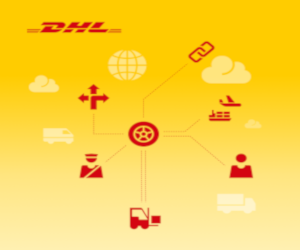Importers can mitigate supply chain disruption and the resulting escalation of costs by taking control of their shipments at origin and moving their goods more strategically.
The impact on Americans from supply chain disruption is ubiquitous and, despite a few apparent regional improvements, likely to continue for some time.
Whether it's the shortage of drivers, trucks, containers, warehouse space, ocean carrier capacity, terminal capacity, air cargo service—it's really affecting us all.
Those who import have particular challenges as their cargo often arrives at congested terminals. In addition, importers often have no control over the routing or timing resulting in storage, demurrage, and/or detention charges.
While ocean carriers, ports, airlines, and air terminals have reduced their allowed "free time," congestion and domestic/inland transport shortages delay the pick-up from the terminals, increasing the cost of goods to the merchants and consumers.
TAKING THE REINS
Importers can combat/mitigate this escalation of costs by taking control of their shipments at origin and moving their goods more strategically. For instance:
1. Air shipments arriving on Friday evening or on Saturday will incur storage charges. Importers who ensure their air shipments arrive at the destination airport on Sunday through Thursday and see to it that they are picked up within 24 hours will avoid additional costs.
2. Routing ocean shipments to a seaport that is not congested, has plenty of chassis available, and readily available drayage service will avoid delays and demurrage. It's often better to have a longer dray from port to destination than to have containers sit offshore for days or, worse, on a pier awaiting pick-up and gathering demurrage.
SETTING THE TERMS
The buyer/importer owns the goods and is paying for the inbound transport even when the cost of transport is included in the cost of the goods. Taking control of how the goods move may mean changing the terms of purchase from FOB, DAT, CFR, or CIF to EXW or FCA.
Such a change gives the buyer control over the routing, enabling the buyer/importer to take U.S. port/airport circumstances into consideration and providing them the opportunity to avoid additional expenses at destination.
In inflationary times, reducing transport costs becomes even more important and effective in reducing the cost of goods sold, and doing so takes some creativity and much effort. It takes requiring suppliers to change their procedures and it requires buyers to change the way they think about how they manage getting their goods to their distribution facilities. Yes, it's quite challenging these days.
Importers should discuss these transport issues with their customs broker and explore avenues to cost and time savings.



